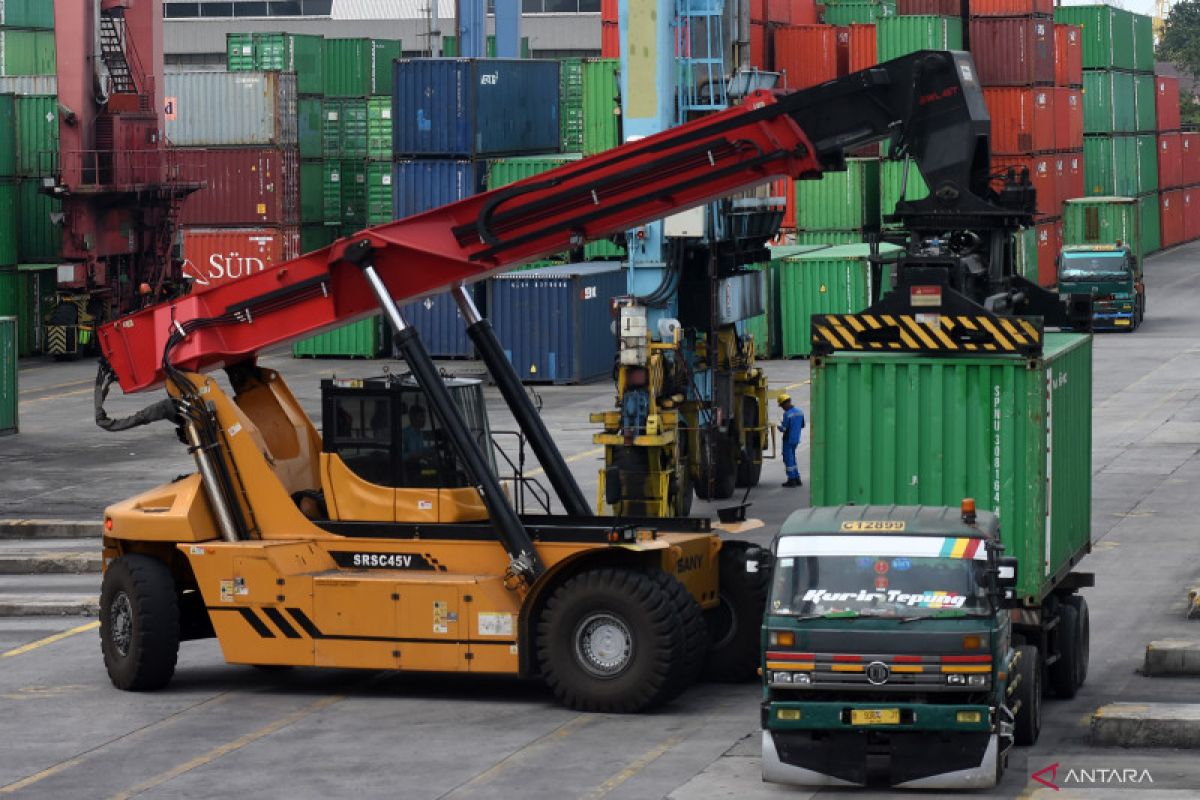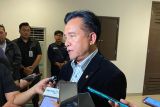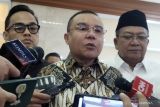Jakarta (ANTARA) - Indonesia still has large capital and opportunities to sustain a growing trade balance amid global turmoil through increased industrial downstreaming, according to the Presidential Staff Office (KSP).
The downstreaming policy, which has become one of President Joko Widodo's priority agendas, could improve the domestic industrial ecosystem and maintain the development of the national trade balance in the long term, chief expert at the KSP Agung Krisdiyanto said.
"The results are there already. During 2022, downstream nickel commodities have succeeded in boosting the export value of nickel and its derivatives by 365 percent year on year (yoy)," he pointed out.
The state is capable of diversifying exports to non-traditional countries, particularly those it has trade agreements with on low tariff schemes, Krisdiyanto opined. Indonesia currently has trade agreements, both regional and bilateral, with ASEAN, Japan, Pakistan, Chile, the United Arab Emirates, Mozambique, Australia, and South Korea.
It is also pursuing the Indonesia-European Union Comprehensive Economic Partnership Agreement (IEU CPA), which is expected to be completed by the end of 2023. “The KSP will oversee and conduct de-bottlenecking measures so that we can come to an agreement soon," Krisdiyanto said.
The government is trying to reduce imports by prioritizing domestic products through the policy on goods and services procurement, he added. This commitment has been outlined in Presidential Instruction Number 2 of 2022, which seeks to increase the use of domestic products and products made by micro and small enterprises and cooperatives in a bid to make the Proudly Made in Indonesia initiative a success.
At present, Indonesia’s condition is still much better compared to other countries since its economy is dominated by the domestic market instead of the international market, he said. Global influences could be circumvented through inward-looking policies, or strategies that utilize the domestic market to promote economic growth, he added.
Baca juga: Kredit karbon pemda nanti bisa diklaim di pasar karbon
Baca juga: TEI sarana tingkatkan kerja sama ekonomi Indonesia-Hong Kong
He also assured that at least US$137 billion in foreign exchange reserves is still sufficient to finance imports for six months. Therefore, it could function as a cushion that is durable enough to maintain the stability of the rupiah exchange rate, which could be impacted by fluctuation due to the increase in the Fed's interest rate. "The business sector must remain cautious, but don't panic and worry— Indonesia's economic condition is still much better," he assured.
In 2022, the national trade balance recorded a surplus of US$54.46 billion, reflecting a growth of 53.7 percent yoy. Indonesia has seen a trade balance surplus for 32 consecutive months since May 2020, according to official records. However, many believe that the record will not be maintained in 2023 due to global issues.










